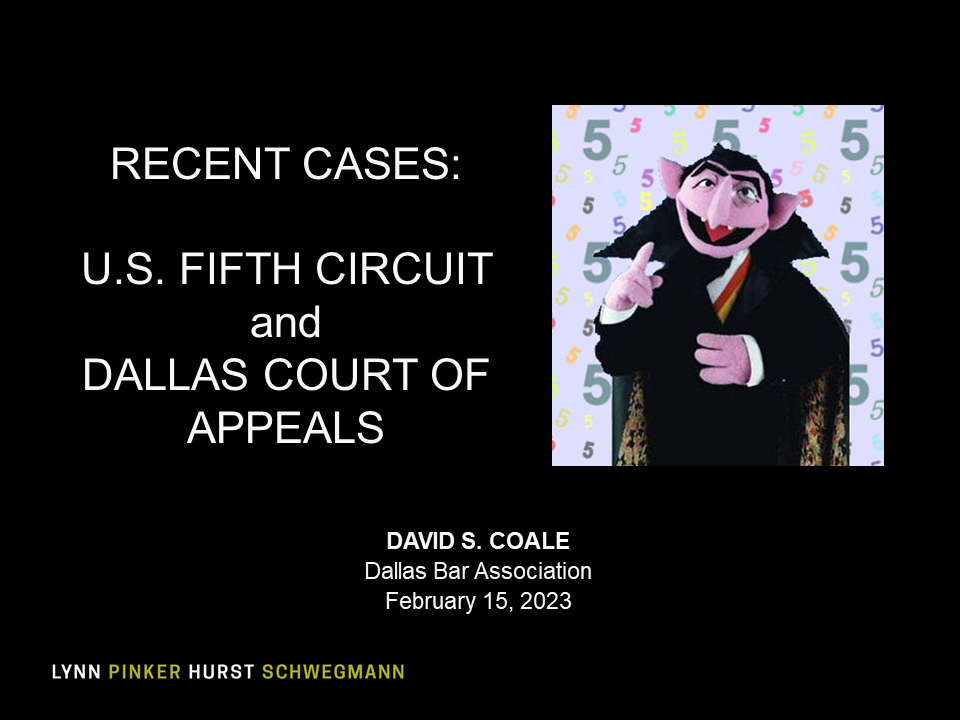 The poem Antigonish begins:
The poem Antigonish begins:
Yesterday, upon the stair,
I met a man who wasn’t there
He wasn’t there again today
I wish, I wish he’d go away.
In that spirit, the majority and concurrence in Mexican Gulf Fishing Co v. U.S. Dep’t of Commerce, No. 22-30105 (Feb. 23, 2023), disagreed about the continuing viability of Chevron.
The case presented a dispute about the authority of the Commerce Department, under a Congressional mandate to conserve the nation’s offshore fisheries, to require charter boats to carry a GPS-location device and submit specified records about fishing activity.
3-0, the Fifth Circuit concluded that the government had exceeded its boundaries. The majority used a Chevron approach to the relevant statute; a concurrence joined but argued that recent Supreme Court cases have tacitly overruled Chevron, and the third judge joined specific parts of the majority opinion.
 Colorfully, the majority and concurrence disputed whether Chevron is fairly called the “Lord Voldemort of administrative law,” due to the Supreme Court’s unwillingness to refer to it recent administrative-law opinions. While that’s witty and good fun, the lack of clear guidance from the Supreme Court about this fundamental doctrine is clearly a problem–as this very opinion shows, since three judges approached the same issue in three different ways under the current state of the law. If the Supreme Court wants to overrule Chevron, it should overrule Chevron.
Colorfully, the majority and concurrence disputed whether Chevron is fairly called the “Lord Voldemort of administrative law,” due to the Supreme Court’s unwillingness to refer to it recent administrative-law opinions. While that’s witty and good fun, the lack of clear guidance from the Supreme Court about this fundamental doctrine is clearly a problem–as this very opinion shows, since three judges approached the same issue in three different ways under the current state of the law. If the Supreme Court wants to overrule Chevron, it should overrule Chevron.


